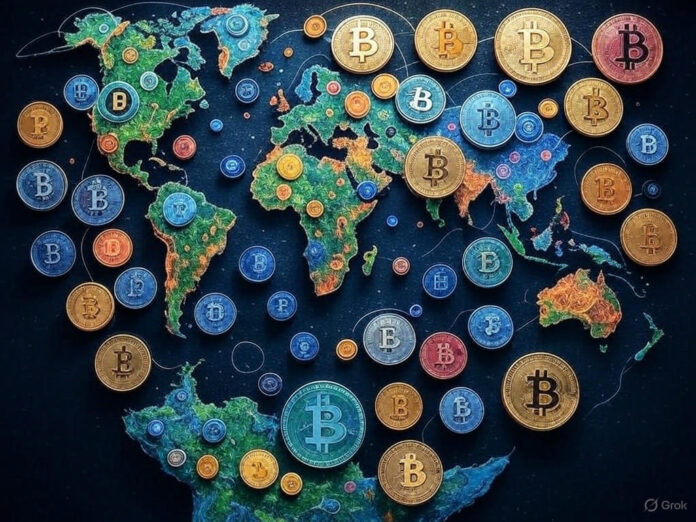Noris Soto
Latin America’s crypto scene continues to evolve, with new products and regional expansions highlighting its rapid growth.
This week’s most notable news is that Bitcoin has reached a new all-time high, trading above $116,000, which has pushed El Salvador’s holdings to over $722 million, peaking at $726 million at one point.
Argentina, on the other hand, continues to move forward with its plans to tokenise assets such as lithium reserves in San Juan, using the Cardano blockchain.
El Salvador doubles down on Bitcoin amid new all-time high
Bitcoin has reached a new all-time high, trading above $116,000, which has pushed El Salvador’s holdings to over $722 million, peaking at $726 million at one point.
Despite strong criticism from the International Monetary Fund (IMF), which has urged the country to reduce its BTC purchases in exchange for a $1.4 billion loan agreement, El Salvador continues to expand its Bitcoin portfolio.
Holding 6,234 BTC, the government sees the cryptocurrency as more than an investment—it’s a tool for financial inclusion and independence from traditional banking systems.
Since making Bitcoin legal tender in 2021, El Salvador has adopted the cryptocurrency to reduce remittance costs, increase economic autonomy, and protect its citizens from inflation.
While the policy remains contentious, particularly among institutions such as the IMF, the Bukele administration is steadfast in its confidence that Bitcoin will drive the country’s economic destiny.
As Bitcoin’s bullish trend continues, El Salvador’s holdings may climb higher, cementing the country’s pioneering role in global cryptocurrency adoption.
Argentina leads lithium tokenisation with blockchain innovation
In a ground-breaking move, Paraguayan firm Atómico3 and Taiwan’s Hua Lian Mining have collaborated to tokenise lithium reserves in San Juan, Argentina, via the Cardano blockchain.
This endeavour represents a significant step toward combining traditional mining and blockchain technology, allowing lithium assets to be represented as digital currencies.
These coins will be available to both institutional and retail investors, enhancing transparency, traceability, and access to funding for renewable energy projects.
Argentina has established itself as a mining-tech pioneer in Latin America by converting physical lithium reserves into digital assets.
The tokenisation process comprises reserve certification, smart contract implementation, and blockchain connectivity to provide security and transparency.
This strategy not only permits global investment but also promotes sustainability and decentralised governance, paving the way for other lithium-rich countries such as Chile, Peru, and Bolivia.
USDC expands B2B reach with new partnerships in Brazil
Circle, the firm behind the USDC stablecoin, has announced a cooperation with HiFi Bridge to facilitate cross-border B2B transfers between the United States, Brazil, and Hong Kong.
HiFi, an API platform meant to ease company payments, has been integrated into the Circle Payments Network.
This move follows a similar attempt in June when Coinbase collaborated with Brazilian fintech Matera to offer USDC transactions via PIX, signalling the early adoption of digital payments in the region.
In 2024, the worldwide B2B payments sector generated more than $905 billion, with the United States contributing $160 billion to Latin America. Brazil alone got $330 million in remittances in May 2025.
Visa has also joined the field with Kob Visa, reporting 30x transaction growth and an estimated $85 trillion B2B market.
Meanwhile, Drex, Brazil’s digital currency experiment, shows promise in real estate tokenisation, with authorities praising its ability to improve efficiency and transparency.
The post LATAM crypto news: El Salvador doubles down on Bitcoin as Argentina leads lithium tokenization appeared first on Invezz
